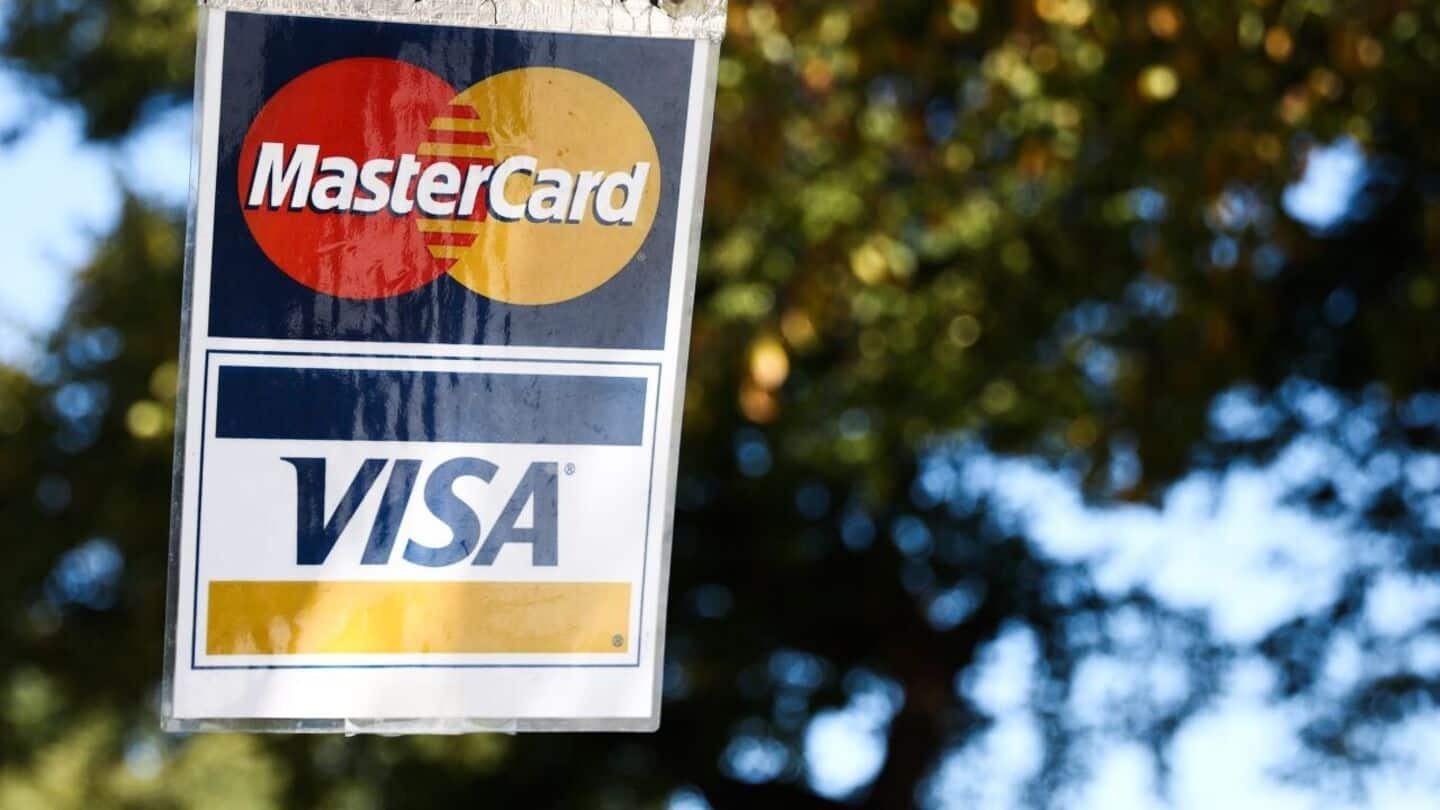
Visa, Mastercard might finally settle 20-year-old feud with merchants
What's the story
Visa and Mastercard are reportedly close to settling a long-standing legal dispute with merchants. The settlement would see the two credit card giants reduce interchange fees and allow stores to refuse certain credit cards. The Wall Street Journal, citing people familiar with the matter, reported that this move could bring an end to the 20-year-old feud between the companies and merchants.
Settlement details
Proposed settlement details
The proposed settlement would see Visa and Mastercard cut credit card interchange fees, which usually range from 2% to 2.5%, by an average of a 10th of a percentage point over time. The companies also plan to ease rules that currently require merchants accepting one type of network credit card to accept all types. This would give stores more flexibility in their payment options.
Acceptance categories
Changes in credit card acceptance
The settlement, if approved by the court, would categorize credit card acceptance into different types such as rewards cards, no-rewards cards, and commercial cards. For instance, a merchant accepting one type of Visa credit card wouldn't have to accept all types under this agreement. This change could significantly alter how merchants handle credit card payments in their stores.
Feud origins
Background of the legal dispute
The legal dispute between Visa, Mastercard, and merchants dates back to 2005. Merchants had accused the companies and large banks of anti-competitive practices due to their interchange fees and acceptance terms. Last year, both firms had agreed to lower interchange fees by an average of 0.07% over five years. However, this deal was rejected by the court.
Settlement hurdles
Challenges and concerns with the settlement
One of the major challenges with this settlement is the division among attorneys representing different groups of merchants. In the past, these lawyers have not always agreed on issues. Another concern is over the rise of rewards credit cards, which are funded by interchange fees and usually come with higher fees for merchants. The legal dispute has also affected consumers as many merchants have started surcharging interchange fees to customers in recent years.